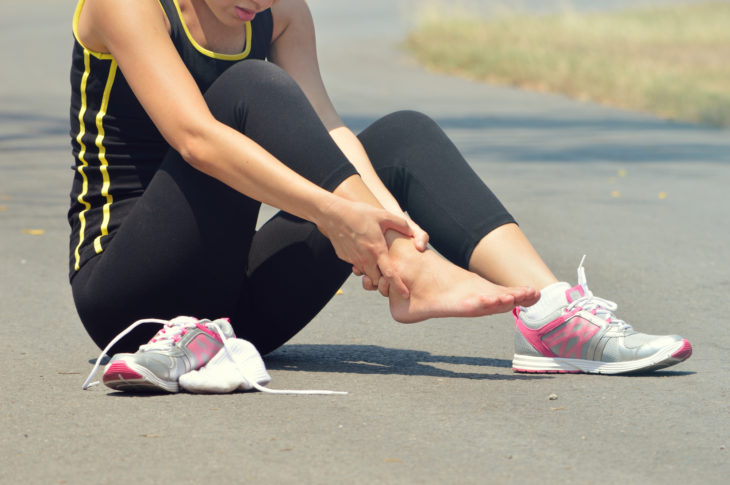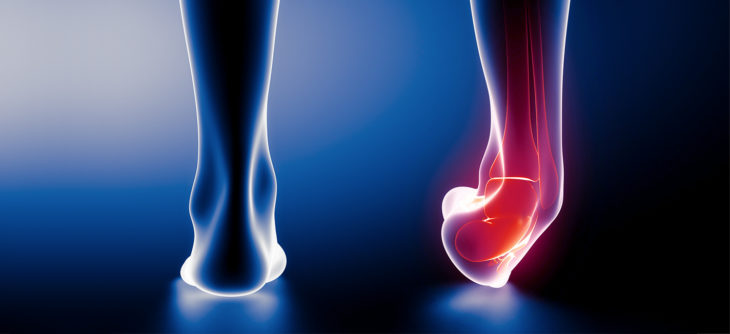Right now, I have tendonitis in my left ankle, tenosynovitis in both of my feet (it’s an inflammation of the sheaths that protect tendons), hammer toes, and my marathon-induced avascular necrosis still hasn’t quite healed. I have a vertebra that’s still healing from being cracked when I fell backward down a flight of stairs last year, and the right shoulder I landed on in the same incident healed funny and is now higher and weaker than my left shoulder. I have inflamed tendons in my forearms and weak medial deltoids from cake decorating, and a combination of cake decorating, an incident in which a 40-pound box dropped on my head, landing on my head as well when I fell last year, and working in front of a computer have made it so that my neck has no curve.
Sometimes, with fitness, you have to take it easy. If I’ve learned anything from running, it’s that. There were multiple weeks during my marathon training progra (3 out of 16) when I was not allowed to run because I had gotten repeated injuries in my feet and ankles, and if I was going to have any chance of finishing the marathon, I had to rest them. After the marathon, I didn’t run for three months (and got back to lifting instead). On top of that, there were plenty of times when I knew I was sick but left the house, tried to run, got about a block into it, got dizzy, and realized I was pushing myself too hard just by even trying.

Source: Sports Beem
My trainer told me repeatedly, “Necessity before indulgence.” Meaning that the overall health of my body, and my ability to function day-to-day, is a necessity. Fitness is an indulgence. It’s hard to conceptualize it that way, a little bit because we live in a culture that puts non-stop pressure on individuals to work out, mainly but not exclusively for aesthetic reasons. But more so because I think we instinctively know that if our bodies are strong and healthy and capable, we’ll be able to live with less pain and do more.
But as I (clearly, repeatedly) have, it’s easy enough to get into fitness and start pushing yourself really hard for faster results – whatever results it is you’re looking for. I don’t think we get enough cultural messaging that tells us that there is such a thing as too much working out. We’re told, instead and ad nauseum, that over a third of U.S. adults are obese, and that about a third of U.S. adults do not engage in physical activity in their leisure time. We’re not told, ad nauseum, that 46 percent of injuries for men and 14 percent of injuries for women are sports-related, or that between 1997 and 2003 Americans spent over $89 billion treating almost 3.5 million sports-related injuries, that 1.35 million young people a year are treated for serious sports injuries.

Source: BACK IN FORM
And although some of this is inevitable — one of my ankle sprains was a result of not being aware enough of my surroundings and rolling my ankle over a chunk of concrete on the sidewalk — it bothers me that our cultural messaging tells us to exercise, but not how to exercise. The most visible modeling that we get for exercise and “getting healthy” is through shows like “The Biggest Loser,” which I hope we all know by now pushes its contestants to exercise to injury, illness, and sometimes hospitalization in order to lose the amount of weight that they do, week-by-week. It’s not realistic, safe, or healthy by any rational metric, and it additionally sends the message that weight loss is worth any sacrifice, and that just isn’t true. We receive those messages whether or not we watch the show, via tabloids in the check-out lane, or talk shows that feature the contestants or trainers, or ads for “Biggest Loser” products, for example. (And no, it’s not all on “The Biggest Loser,” of course, but it is a notable example.)
Of course, I wouldn’t deign to tell you how to exercise, because I’m not a certified personal trainer, or a physical therapist, or a chiropractor, or a doctor. I would urge you to heed the warning to talk to your doctor before you start an exercise program, because talking to your doctor at the outset might save you weeks or months of doctor visits on the back end. I would urge you, even if you can’t afford to see a trainer regularly, to work with a trainer once to design an appropriate fitness routine for you and your needs, if you’re going to commit to one particular sport. I would urge you to learn from my mistakes and be moderate with exercise, to stop running when you get a nagging pain in your foot, to stop your strength routine when you feel a kink in your back, to take an hour-long nap instead of going to the gym for an hour when you have a fever. I would definitely urge you not to rush your training, whatever it is that you’re doing, and accept slow, steady, healthy progress toward your goals. You have your whole life ahead of you to reach them, and no matter how counter-intuitive it feels, pushing your body too hard is going to slow you down in the long run. Taking care of your body means a lot of different things, and rest is probably the major one.
Original by Rebecca Vipond Brink
